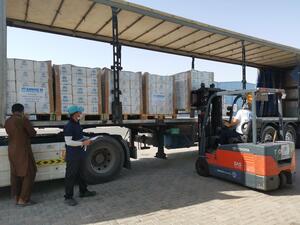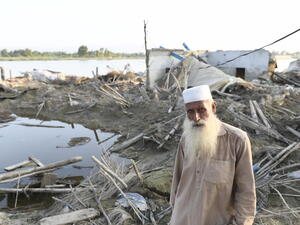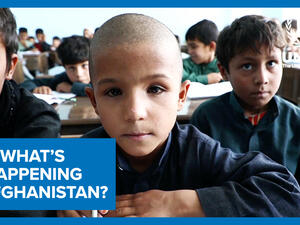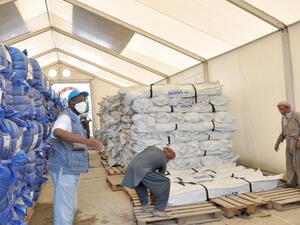Afghanistan: spring repatriation under way
Afghanistan: spring repatriation under way
The spring repatriation season to Afghanistan is getting underway. Today some 1,000 Afghans left the Katcha Garhi refugee camp on the edge of Peshawar, Pakistan. From neighbouring Iran, a total of 1,117 refugees returned to Afghanistan over the past two days, signalling an important increase over recent months. The returns on Sunday and Monday included 460 UNHCR/Iranian government-facilitated returns and 657 spontaneous returnees.
Following a month of refresher training of our repatriation staff in Pakistan, we're focusing this year on facilitating the return of Afghans in Pakistan's more than 200 refugee camps as well as urban areas, from where 82 percent returned last year. More than 1.6 million Afghans returned from Pakistan last year under our programme that began last March.
Since we started helping Afghans return from Iran last year, more than 400,879 have repatriated, including 266,946 who went home under an assisted programme and 133,933 who returned spontaneously.
UNHCR has added a new test to complement our screening effort in Pakistan - iris recognition scanning. After a successful test last year of iris recognition technology, from now onwards all refugees over the age of 12 will be tested by equipment that detects anyone trying to undergo the test a second time. Three repatriation verification centres are being set up in Pakistan while a fourth will be established at a crossing point just inside Afghanistan.
UNHCR plans to help some 1.2 million refugees to return to Afghanistan this year from Pakistan, Iran, and the Central Asian states, along with another 300,000 internally displaced persons (IDPs) who will be assisted homewards. Refugees returning under the facilitated return initiative receive a small travel grant of between $3 and $30 depending on the distance to their home communities, along with some food and other assistance provided inside Afghanistan.
Recent rains across Afghanistan have eased the drought in the north and alleviated some water problems in the south and east of the country, encouraging some people to repatriate home. While important job-creating development is underway in Afghanistan, refugees cite concerns about security, shelter and employment.
UNHCR so far has received $47 million out of $195 million needed for the Afghanistan programme and to assist Afghan refugees in surrounding countries.









